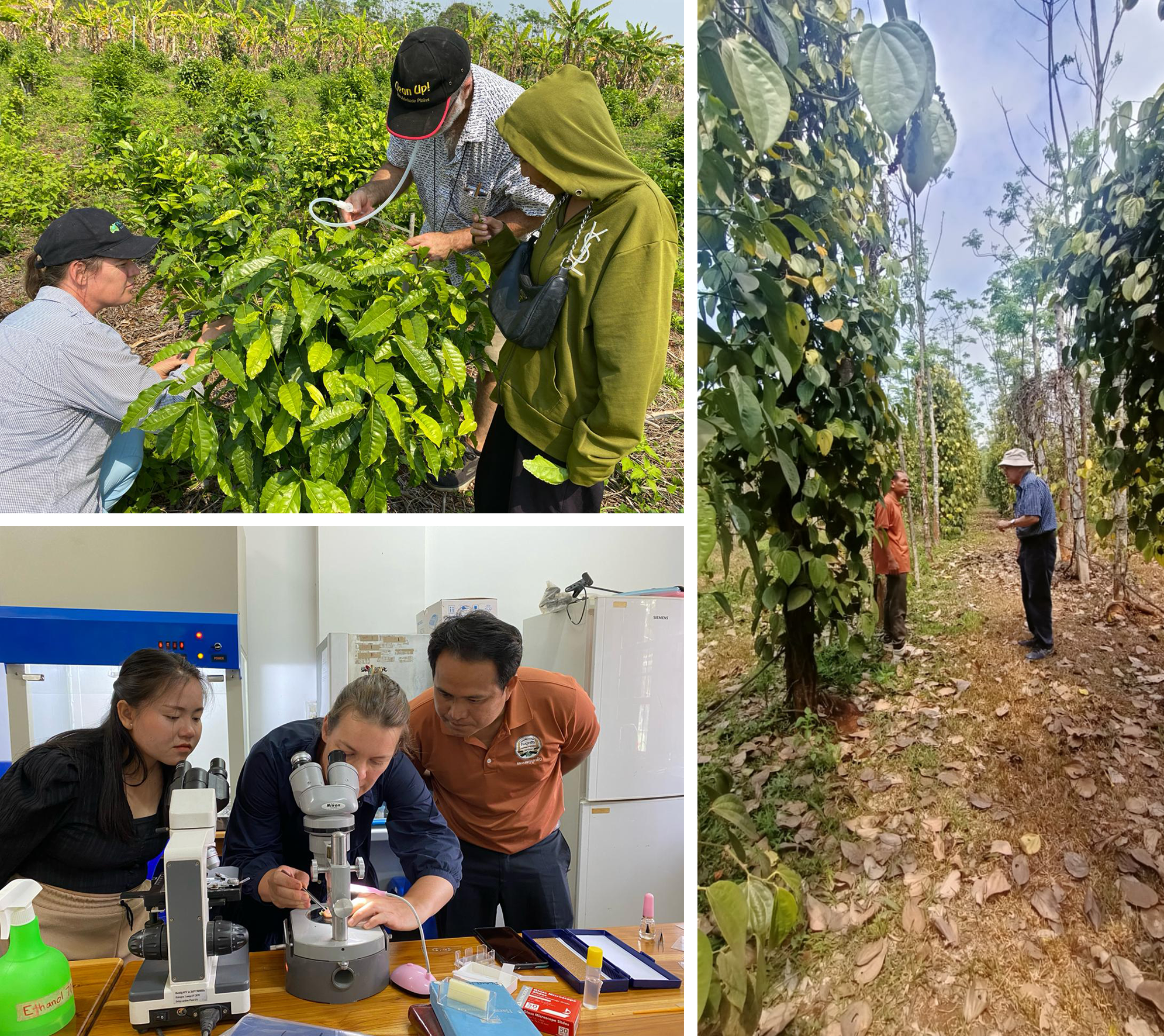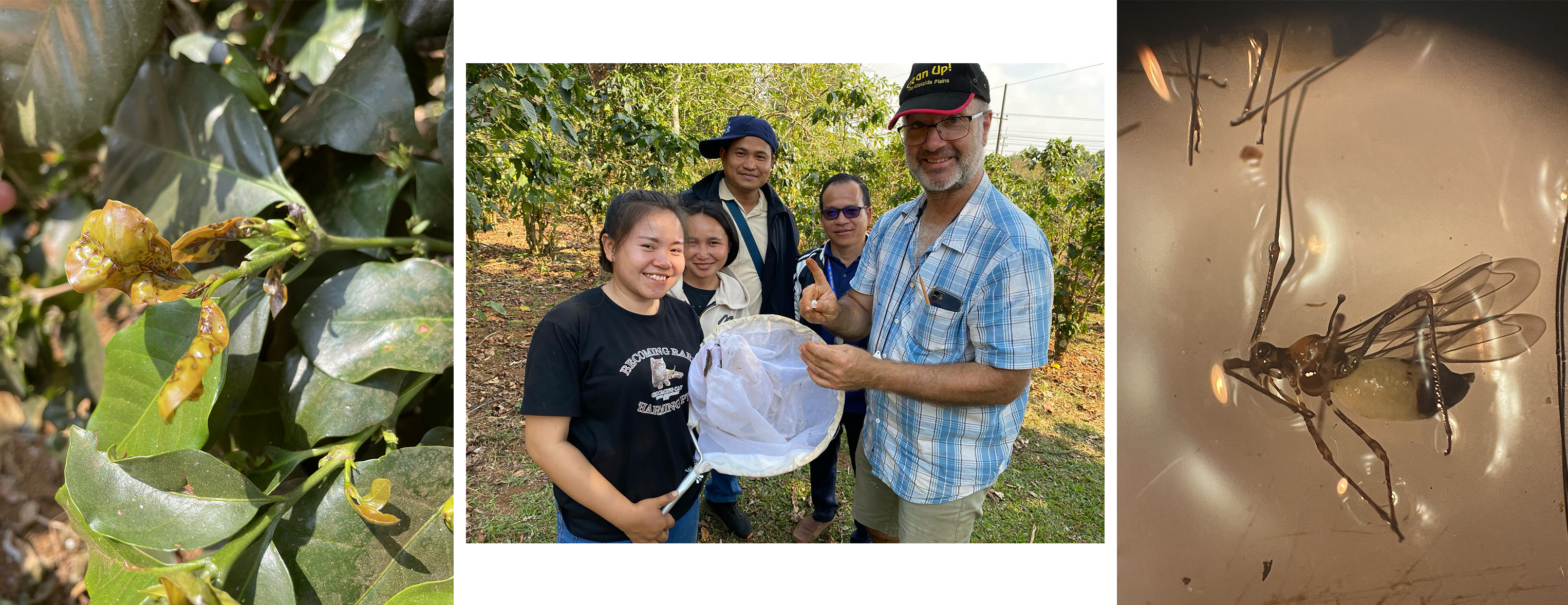

Improving plant disease knowledge and diagnostics in Laos
October 29, 2024
The Crawford Fund South Australia Committee recently supported plant disease diagnostics and disease management training in southern Laos. The training provided the same significant benefits to the many others from around Australia and from Laos who have been involved in our related work there since 2009.
Dr Maarten van Helden and Dr Cathryn Todd from the South Australian Research and Development Institute (SARDI), joined Professor Lester Burgess, at regional sites in southern Laos, and at the Provincial Agriculture and Forestry Office (PAFO) laboratory to both train local staff and students, and to learn more about pests and diseases in tropical and small-scale cropping systems in Laos.
Led by Professor Lester Burgess and Dr Deirdre Lemerle, the NSW Committee has a long history of supporting training programs in Laos focusing on plant diseases, agronomic practices and soil health. This project allowed South Australian researchers to become part of this existing network.

The training activity included:
- Mentoring of local staff and students
- Disease identification of crop plants in Laos
- Learning about agriculture and pathology in a tropical environment from Prof Lester Burgess.
Students and multiple staff members from PAFO participated in the collection of pest insects and disease specimens, and learned microbiological and diagnostic techniques in the laboratory.
Specimens were collected for submission to culture collections to contribute to the knowledge of diseases in Laos. A total of 20 cultures and 17 dried plant specimens were added to culture collections. Pest specimens were also collected, and a total of 73 insect samples were imported as wet preserved specimens in agreement with import regulations to be further identified and added to the Waite Institute and Nematode Collection.
“The visit increased our knowledge of tropical and small-scale cropping systems in Laos. Many crops were observed and investigated that are not regularly grown in South Australia’s temperate climate like coffee, rice and passionfruit. In Laos’ small-scale, market garden production systems, growers battle some of the same disease affecting growers in South Australia, for example Rhizoctonia, Pythium and Phytophthora spp.,” said Dr Todd, a senior research scientist at SARDI.

“Staff from the plantations that we visited were very interested and often also participating in the training. One major event was the capture and identification of the insect causing problems in organic coffee growing (Mosquito bug Heliopeltis theivora) by one of the students. This pest was also confirmed later in tea and cashew plantations,” said Dr Maarten van Helden, Senior Researcher, Entomology.
“This training benefits South Australia as it improves knowledge of pest insects in tropical cropping systems and increases diagnostics skill for exotic species which also allows better preparedness for possible incursion risks related to import and biosecurity responses,” said Dr van Helden.
“Specimens are now available for national and international stakeholders to use as positive controls for diagnostic services and contribute to the understanding of disease in Laos,” he concluded.




 0
0